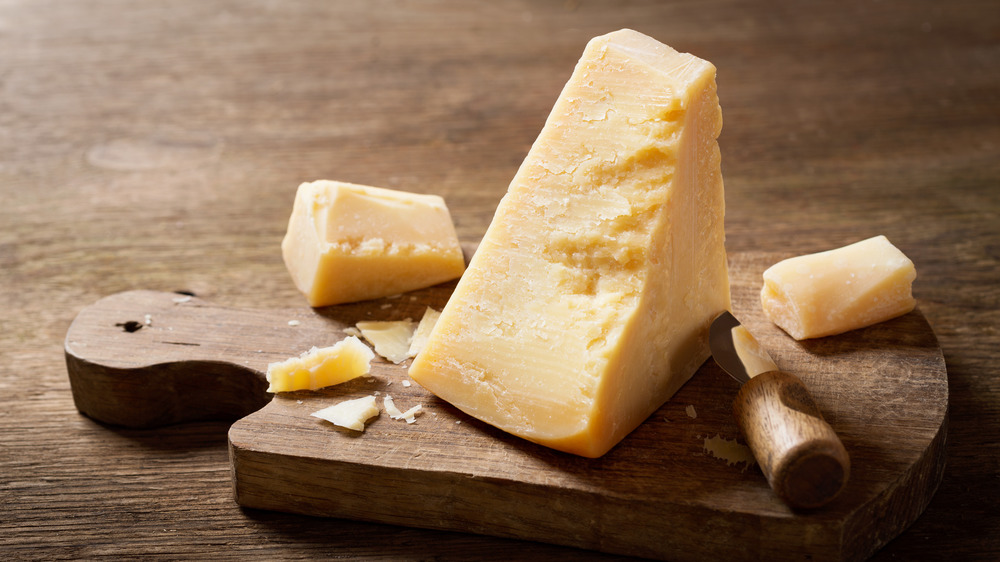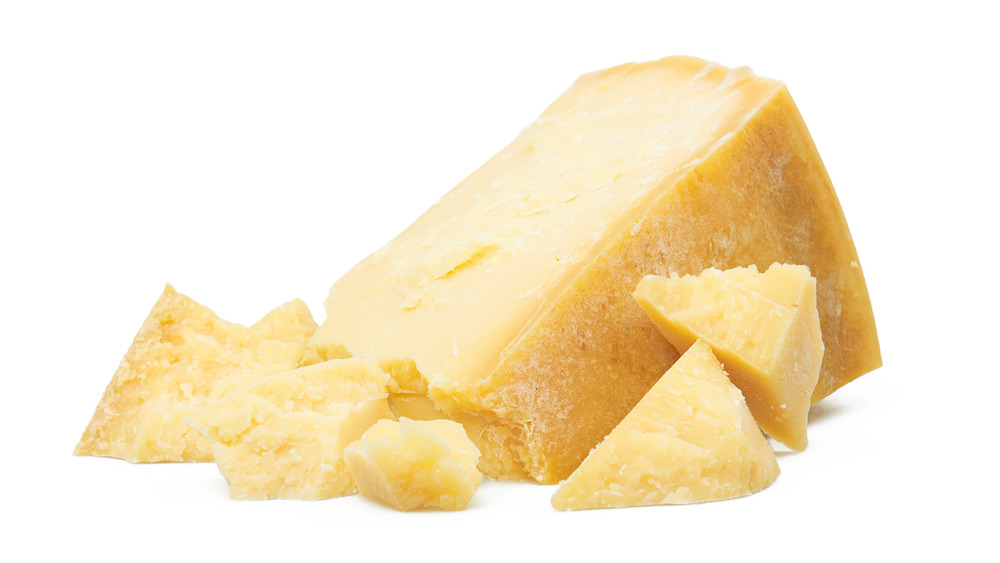Why Parmesan Cheese Is About To Become Way More Expensive
Around a year ago, the world was shocked out of its fog of 2020 optimism, with the arrival of the coronavirus pandemic which completely upended life as we knew it. Toilet paper disappeared. Items like oat milk flew off grocery shelves while producers faced a glut of inventory and restaurants shut down. Cheese prices plummeted as restaurants stayed closed, then skyrocketed when demand – particularly for mild cheddar – spiked once again. That up-and-down trajectory represented what The New York Times then said was a 181 percent turnaround in cheese prices.
While our desk calendars tell us we left 2020 behind, it seems its impact will be felt for some time to come; the volatility we saw in the cheese and dairy industry last year will continue to haunt us, at least through the first half of 2020. "Younger, fresh, cheeses like mozzarella, cream cheeses, and things like that would have gone up in price pretty much in tandem with these increases nine to 12 months ago," Neil Cox, Chief Customer Officer at Schuman Cheese, tells Eat This, Not That!, but the story is slightly different for harder cheeses like parmesan.
Parmesan price hikes are expected from April 2021 onwards
Parmesan prices are expected to trend upward from April this year onwards because parmesan is a hard cheese that needs a bit of time to age. Cox tells Eat This, Not That! that the price of producing parmesan went up by between 40 to 60 percent in the spring and early summer months of last year, so most of the parmesan that will hit the market, at least from the beginning of April of this year, could surge by $1.50 to $2 for a pound and about $.70 to $.75 per wedge. These are the same cheeses that were made when the market was at its most volatile.
Cheese experts think most consumers who appreciate the taste and qualities of a good parmesan will take what we hope is a short-term price hike on the chin in order to enjoy the product. "Parmesan is typically used for grating, and in order to get a hard texture for grating, a cheese has to be aged," Liz Thorpe, author of The Book of Cheese says. "Comparable or alternative cheeses are going to face a similar problem. It becomes an issue of, 'If you want this, you're going to have to pay more for it.'"

